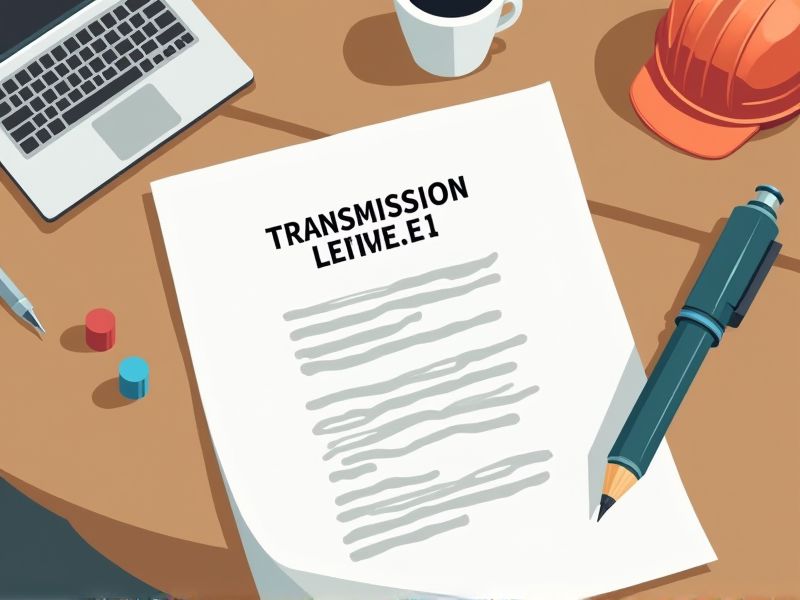
Transmission Line Technicians work in potentially hazardous environments, necessitating a deep understanding of safety and technical protocols. Certifications ensure that technicians possess the required competencies to handle complex systems and mitigate the risk of accidents. Industry standards frequently evolve, making it critical for technicians to stay current with best practices through credential programs. Below are some crucial certifications for a Transmission Line Technician.
OSHA 10-Hour Construction Safety Certification
Transmission line technicians work at heights and handle high-voltage equipment, increasing the risk of falls and electrocution; OSHA 10-Hour Construction Safety Certification provides essential safety protocols to mitigate these hazards. This certification ensures workers are educated on proper protective gear usage, fostering a safer work environment. Technicians often face diverse site conditions, and the OSHA course covers varied topics like scaffolding and personal protective equipment. Training in hazard recognition directly correlates to a decrease in workplace accidents, promoting both technician well-being and operational efficiency.
OSHA 30-Hour Construction Safety Certification
Transmission line technicians face numerous hazards, including high voltage exposure and work at significant heights, increasing the need for comprehensive safety training. The OSHA 30-Hour Construction Safety Certification equips these workers with critical knowledge on recognizing and mitigating job-related risks. This certification ensures compliance with industry-regulated safety standards, reducing incidents and enhancing workplace safety. As a result of such training, companies may experience decreased accident rates and associated financial liabilities.
NFPA 70E Electrical Safety Certification
NFPA 70E Electrical Safety Certification significantly reduces the risk of electrical hazards in transmission line work, enhancing worker safety. This certification ensures technicians are knowledgeable about proper safety procedures, lowering the incidence of arc flash injuries. Compliance with NFPA 70E standards aligns with federal regulations, helping companies avoid costly fines and legal liabilities. Certification also promotes a culture of safety within organizations, leading to more efficient and reliable maintenance and operation of electrical systems.
CPR/First Aid Certification
Transmission line technicians face high-risk environments, increasing the likelihood of encountering situations requiring CPR or first aid intervention. Certification equips technicians with crucial skills to provide immediate care in emergencies, potentially stabilizing victims until professional help arrives. Access to remote work sites often delays emergency medical services, making on-the-spot training indispensable for life-saving measures. Compliance with safety regulations involves having certified personnel, reducing workplace injury liabilities and ensuring a safer work environment.
Fall Protection Certification
Transmission line technicians frequently work at significant heights, which introduces a high risk of falls, making fall protection certification essential for ensuring safety. Being certified ensures that technicians are properly trained to use safety equipment and protocols, reducing workplace accidents. Occupational Safety and Health Administration regulations often mandate such certifications, emphasizing legal compliance and reducing employer liability. Effective fall protection training can lead to increased productivity as technicians feel more secure and focused while performing their duties at height.
High Voltage Safety Training Certification
High Voltage Safety Training Certification is essential because it ensures transmission line technicians understand the dangers associated with high-voltage electricity and can work safely. This certification helps reduce the risk of fatal accidents, as handling live electrical equipment requires precise knowledge and skills. Regulatory bodies mandate this certification to enhance workplace safety standards and compliance. It also improves a technician's competency and employment prospects, as employers prioritize certified professionals to minimize liability and maintain smooth operations.
Climbing and Rigging Certification
Climbing and Rigging Certification ensures that transmission line technicians possess the necessary skills to safely ascend and work on high structures, reducing the risk of workplace accidents. Specialized training helps technicians understand load limits and appropriate rigging techniques, which are crucial for maintaining structural stability. Certification provides industry recognition of a technician's expertise, which enhances employability and fosters professional trust. Compliance with certification requirements aligns with regulatory standards and contributes to the overall safety and efficiency of power transmission infrastructure.
Arc Flash Awareness Certification
Transmission line technicians work directly with high-voltage systems, increasing their risk of encountering arc flash incidents, making awareness essential for safety. Certification provides technicians with the knowledge to identify potential hazards, thereby reducing the likelihood of severe injuries. Many regulations and industry standards necessitate up-to-date training, compelling technicians to stay informed about the latest safety protocols. Employers seeking to minimize downtime and liability often require certification to ensure a well-prepared workforce.
Line Clearance Safety Certification
Transmission line technicians require Line Clearance Safety Certification to ensure they can safely work near energized high voltage lines, reducing the risk of electrical accidents. Certification guarantees that technicians possess the necessary skills and knowledge to identify potential hazards and implement safety protocols. Presence of certified technicians minimizes operational downtime and reduces liability for utility companies. Compliance with industry regulations and standards mandates such certification, fostering a safer work environment.
Confined Space Entry Certification
Confined Space Entry Certification ensures that transmission line technicians understand potential hazards in restricted environments, reducing the risk of accidents. Many transmission lines involve spaces such as vaults or tunnels, where fumes or limited ventilation pose serious dangers. Without proper certification, technicians might not be equipped with the necessary knowledge to safely assess and navigate these spaces. Regulatory compliance requires proper training and certification to maintain workplace safety standards, protecting both employees and employers.
Summary
By obtaining certifications, you, as a Transmission Line Technician, can enhance your technical skills and knowledge. This advancement often leads to increased job opportunities and potential salary increments. Employers frequently prioritize certified technicians, resulting in higher demand and job security. Certification may also enable you to undertake more complex projects, enhancing your professional reputation.
